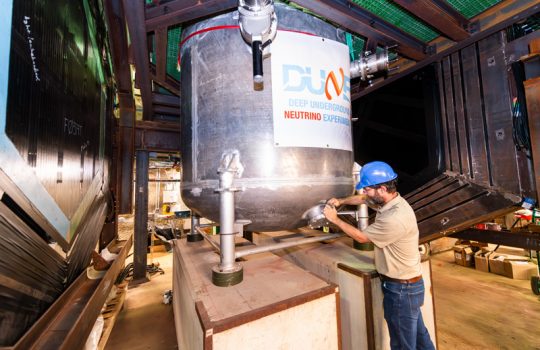Prototype DUNE 2×2 detector to capture 10,000 neutrino interactions daily
Interesting Engineering, Oct. 1, 2024
The 2×2 detector has captured its first neutrino interactions at Fermilab with help from scientists at SLAC. The prototype neutrino detector will help fine-tune a full-size version of the DUNE Near Detector Liquid Argon detector and will capture up to 10,000 neutrino interactions per day.

